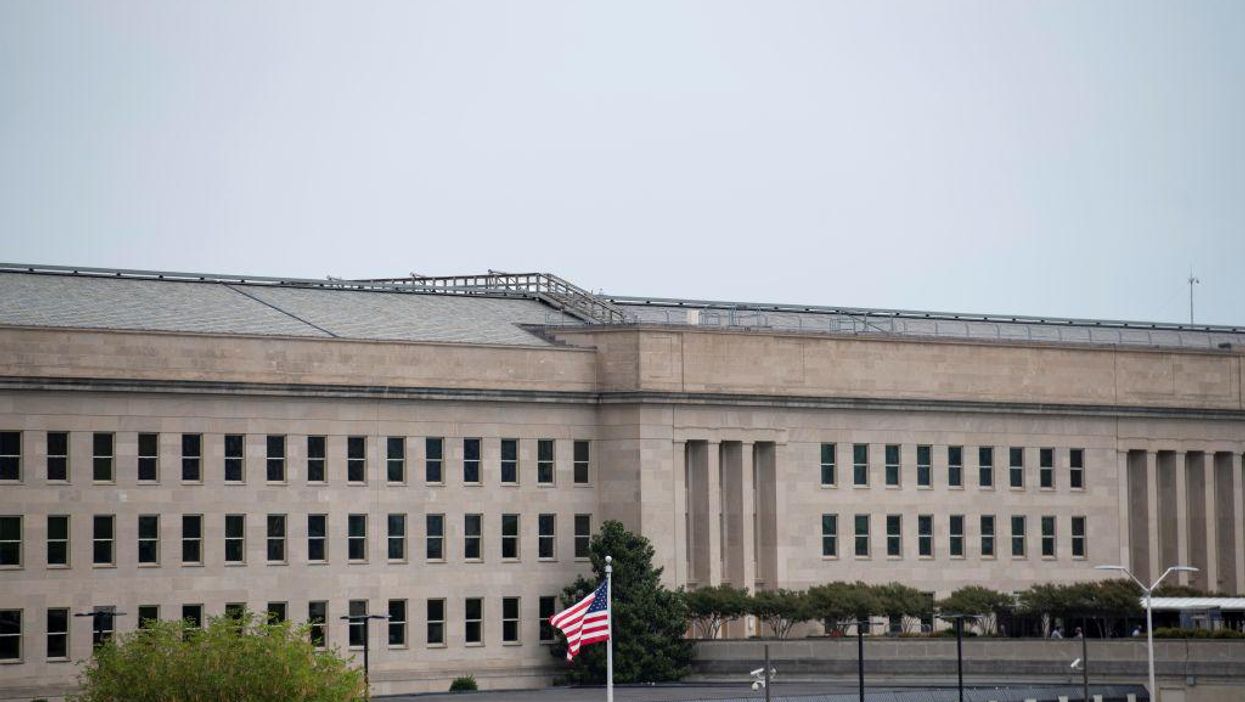
Liu Jie/Xinhua via Getty Images

The Pentagon issued new rules this week outlining what constitutes prohibited extremist behavior in military ranks and what will be the procedure for handling such behavior, the Associated Press reported.
The new rules, officially issued Monday, come nearly a year after some current and former service members participated in the Jan. 6 riot at the U.S. Capitol, triggering a broad Department of Defense review.
Shortly after the Capitol riot, Defense Secretary Lloyd Austin also ordered an unprecedented one-day stand-down for all branches of the military to discuss the problem of extremism and extremist ideology in the ranks. The reported purpose for the stand-down was so that military leaders could gain a better grasp on the scope of the problem.
The Pentagon claimed that extremist behavior is on the rise within the military ranks, noting that roughly 100 substantiated cases of extremist activity have been documented in the past year, an increase over previous years.
In the policy release, the Pentagon lays out a new two-step process to determine that someone is responsible for extremist behavior. First, a military commander must determine that the actions a service member engaged in constituted "extremist activity"; and second, the commander must determine that the service member "actively participated" in that activity.
The new policy broadly defines "extremist activity" as any behavior ranging from depriving people of their constitutional rights to supporting terrorism or the overthrow of the U.S. government or advocating for unlawful discrimination.
The new rules still maintain some level of vagueness, allowing "extremist activity" to be left up to interpretation. Below is the full list of what constitute “extremist activities," as shown in the policy release:
After determining whether certain behavior constitutes "extremist activity," commanders are given 14 categories by which they will judge whether the service member engaged in "active participation."
The categories are intended to root out formal membership in extremist groups, according to Pentagon spokesman John Kirby. But when taken separately, something as small as "liking" a questionable post on social media could result in a service member being punished.
"The physical act of liking is, of course, advocating, right? And advocating for extremist groups, groups that advocate violating their oath to the Constitution, overthrow the government, terrorist activities ... Liking is an advocation and that’s laid out clearly in the instruction,” Kirby told reporters Monday, according to Defense One.
Other senior defense officials reportedly clarified that "liking" a post won't automatically initiate punishment. Such behavior will only be part of the review process.
"As an incident comes to light, and as authorities are looking at the context of that case, then that social media information could be one point among many that would be taken into consideration," a senior defense official told reporters, ABC News reported.
"There has to be a knowing element to it," another senior defense official added. "There has to be sort of an amplification of the message is what we're looking at. So, somebody who just stumbled across content wouldn't be necessarily sufficient, depending on the facts, to violate this policy."